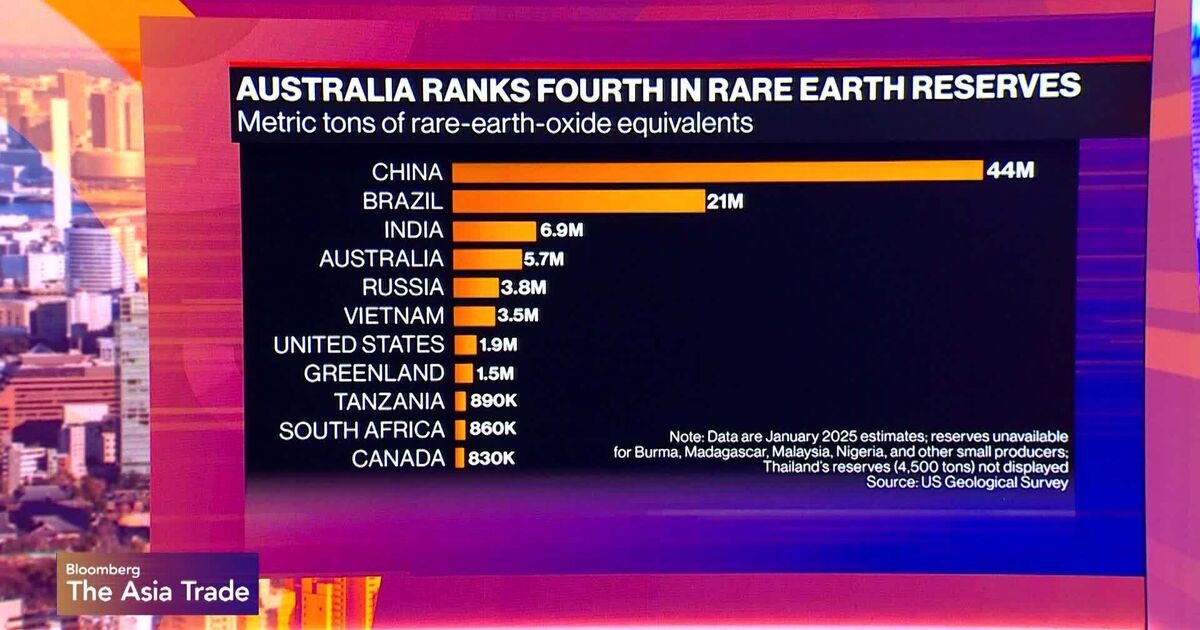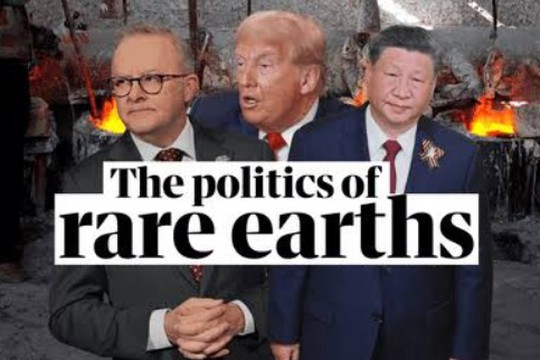Albanese (left), Trump (center) and Xi
President Trump’s pact with Australia on access to the country’s rare earth minerals was a sign of a U.S. hunt for new sources for the critical resources after China’s sharp restrictions on its supply, ‘The New York Times’ reports.
The plan, which Mr. Trump and Prime Minister Anthony Albanese of Australia said would generate projects worth up to $8.5 billion, comes after Mr. Trump said this month that it was “sinister and hostile” for China to tighten export controls on rare earth minerals.
Mr. Trump has made the acquisition of rare earth minerals, which are used to make products including motors, brakes, semiconductors and fighter jets, a centerpiece of his foreign policy strategy. Both the Trump and Biden administrations argued that increasing access to mineral-rich countries would be instrumental to becoming less dependent on China and strengthening global supply chains.
The deal would allow the United States access to Australia’s vast mineral resources, while Australia agreed to invest billions in U.S. defense companies, according to a White House summary of the agreement. But it is unclear how concrete the agreement is or how soon mineral supply to the United States could be ramped up.
Under the terms of the deal, the United States and Australia intend to invest a total of $3 billion in critical mineral projects over the next six months, which is expected to result in projects worth around $53 billion, according to the White House. The Defense Department also agreed to invest in the construction of a new refinery in Australia that is expected to extract 100 tons per year of the critical mineral gallium.

The two leaders also agreed to build on a previous submarine deal between the two nations and Britain.
Mr. Trump earlier this year also talked about acquiring minerals in Greenland and Canada. The United States in recent years has also invested in a railway in Angola that will help the U.S. have access to critical minerals in central Africa.
Mr. Trump’s aides said the agreement with Australia would further that effort.
“Australia is really, really going to be helpful in the effort to take the global economy and make it less risky, less exposed to the kind of rare earth extortion that we’re seeing from the Chinese,” said Kevin Hassett, Mr. Trump’s National Economic Council director.
Mr. Trump also appeared to commit to the nuclear submarine pact known as AUKUS. The administration raised doubt over the future of the deal in June when the Pentagon announced it was reviewing the agreement.
Australia sees the acquisition of nuclear submarines as crucial to its national security.
Nuclear-powered submarines can travel much farther without detection than conventional ones can.
Even as he signed the agreement with Australia, Mr. Trump appeared optimistic that he could repair relations with China.
Mr. Trump said he believed he would secure a trade deal with the country on a trip to Asia this month, where he is expected to meet Xi Jinping, China’s leader.
Mr. Albanese’s office described the minerals and security agreement as an “action plan” that “does not constitute or create any legally binding or enforceable obligations, express or implied.”(?!)
read more in our Telegram-channel https://t.me/The_International_Affairs

 10:14 25.10.2025 •
10:14 25.10.2025 •























